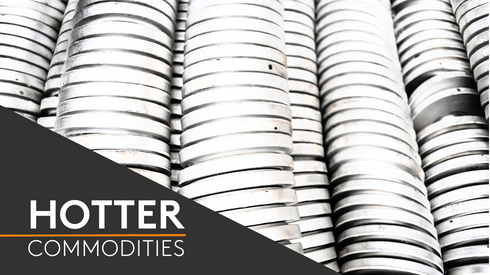This episode goes live on September 24; find it wherever you get your podcasts.
Chamberlain’s full conversation with Fastmarkets’ Andrea Hotter on the evolution of the LME in the modern market, sustainability initiatives including the LMEpassport, as well as the potential for new contracts, will be available to listen to on Spotify, Apple Podcasts, Amazon Music or wherever you get your podcasts.
Evolution of the LME in the modern market
Chamberlain shared how the LME, a 147-year-old institution, has been instrumental in facilitating trades within the metals market. Initially, it started to address the industrial revolution’s demand for copper and tin in the UK. Today, it continues to support critical minerals essential for the world’s decarbonization efforts.
When asked what role the LME has to play in the energy transition and making the industry more sustainable, Chamberlain said this about its response to the broad consensus:
It’s not good enough to say I’m going to use this copper for a good purpose, and hence I can turn a blind eye to the conditions in which it was extracted and refined. That I think is where most of the world is, and it’s certainly where the LME is.
LMEpassport and responsible sourcing
“We believe that by leveraging technology and promoting transparency, we can make the metals market more efficient and resilient. Our goal is to build a market that not only meets today’s demands but is also future-proof,” says Chamberlain.
LMEpassport is a key tool in the LME’s sustainability arsenal. This digital register allows market participants to access and share sustainability data, ensuring transparency and accountability in the metals supply chain. Chamberlain believes that LMEpassport will play a critical role in promoting responsible sourcing practices across the industry.
Introduction of new contracts for the energy transition
Chamberlain highlighted the introduction of new contracts tailored to the energy transition. These contracts are designed to facilitate the trade of metals essential for renewable energy technologies, such as lithium, nickel, and cobalt. By creating these contracts, the LME is enabling market participants to hedge risks and invest confidently in the materials driving the energy transition.
“Our focus is on listening to the market and adapting to its evolving requirements. By introducing new contracts and enhancing our technological framework, we aim to ensure that all participants have the tools they need to succeed,” says Chamberlain.
He noted that low-carbon or premium contracts linked to the energy transition will likely be approached via spot trading platforms in order not to split liquidity from the LME’s core contracts.
Listen to the episode to learn more.
About Matthew Chamberlain, chief executive officer at the London Metal Exchange
Matthew Chamberlain is the CEO of the London Metal Exchange and a member of the Management Committee of HKEX Group. Chamberlain joined the LME in 2012, having advised HKEX on the acquisition of the LME while at UBS. He started his career at Citibank, and holds an MA from Trinity College, Cambridge. Learn more about Chamberlain and the LME here.






